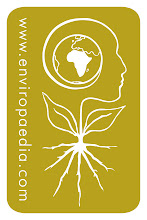4 February 2009
(Cape Town, South Africa) - Legalising greyhound racing will only worsen an already out-of-control animal welfare crisis the South African government has been warned.
The Department of Trade and Industry kicks off a second round of public consultations this Friday to gauge opinion on possibly reinstating legal greyhound racing in South Africa. Greyhound racing has been banned in South Africa since 1945.
The International Fund for Animal Welfare (IFAW – www.ifaw.org) said South Africa already found itself in an escalating animal welfare crisis.
“The ngo community, which is largely charged with caring for animals in disadvantaged communities, is overwhelmed and simply can’t keep up with overpopulation, disease control and malnutrition,” said Christina Pretorius, Head of Programmes for IFAW.
“That’s just one part of the crisis. The fact is that South African authorities don’t have the laws, or the manpower to manage illegal activities such as dog fighting and puppy mills – tasks that are left to animal welfare ngos to sort out. Under the circumstances it is inexplicable how they can even consider legalising greyhound racing.”
IFAW said that re-introducing greyhound racing under the poor socio-economic conditions that affect much of the country’s populace would lead the dogs to be seen as expendable commodities.
“By encouraging the idea that one may profit from racing greyhounds, illegal racing will spiral out of control in disadvantaged communities,” said Pretorius.
 “Additionally, greyhounds that have reached the end of their usefulness as racing dogs (from two to four years old), will be relinquished further adding to the burden of animal welfare organisations and encouraging a destructive cycle of animal abuse.”
“Additionally, greyhounds that have reached the end of their usefulness as racing dogs (from two to four years old), will be relinquished further adding to the burden of animal welfare organisations and encouraging a destructive cycle of animal abuse.”
IFAW’s projects in South Africa – Community Led Animal Welfare (CLAW) in Johannesburg, and Mdzananda Animal Clinic in Khayalitsha outside Cape Town report that they regularly come across large numbers of greyhounds.
“These dogs are usually used illegally, for poaching small buck and game for the pot, and dogs are regularly transported across provincial borders without the required vaccines to reach favoured poaching spots. It is common that dogs are gored, have broken legs or are run to ground while hunting,” said Cora Bailey, founder of CLAW.
“The dogs are often kept in squalid, overcrowded conditions. At various hostels in Johannesburg, it is not unusual for us to find anything between 100 and 200 greyhounds living in appalling conditions.
“Under the current circumstances it would be disastrous to legalise greyhound racing.”
Public consultations will take place on the following dates and venues:
- 6 February 2009, 09h00-12h30, Protea Edward Hotel, Durban
- 13 February 2009, 09h00-12h30, Protea Seapoint Hotel, Cape Town
- 20 February 2009, 09h00-12h30, Protea Marine Hotel, Port Elizabeth
- 26 February 2009, 09h00-12h30, Garden Court Hotel, Bloemfontein
- 27 February, 2009, 09h00-12h30, Protea Manor Hotel, Hatfield, Pretoria
- 6 March 2009, 09h00-12h30, Garden Court East London, Esplanade, East London
- 13 March 2009, 09h00-12h30, Willows Garden Hotel, Potchefstroom
For media-related inquiries, contact: Christina Pretorius (IFAW, Southern Africa)
Tel: +27 21 424 2086
Mobile: +27 82 330 2558
Email:
cpretorius@ifaw.org






